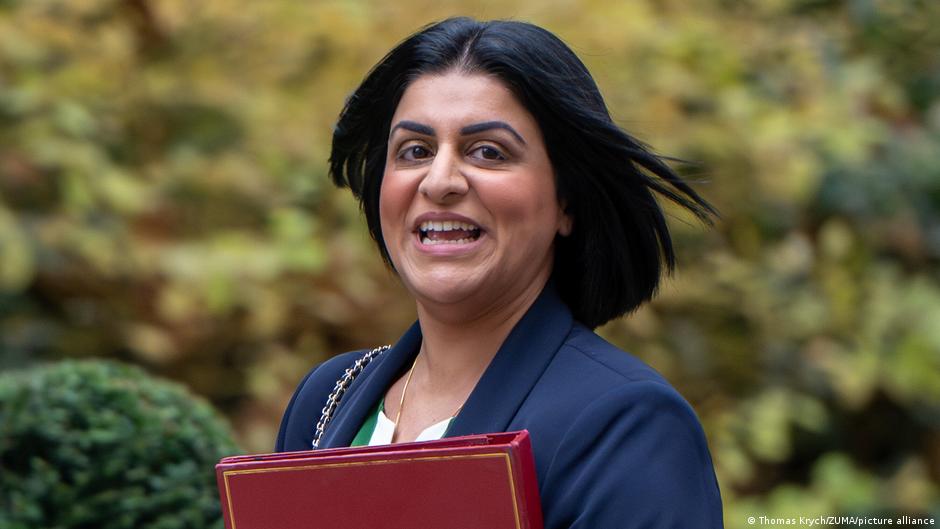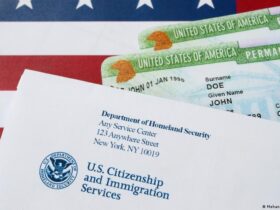Long-term net migration to the United Kingdom for the 12 months to June 2025 was 204,000, Data released by the National Statistics Agency on Thursday revealedThis is the lowest level in a four-year period.
This equates to a 69% decrease compared to the same 12-month period a year earlier, at 649,000. However, that figure also includes the second half of 2023 , An all-time record calendar year for net migration to the UK , Around 860,000 more people immigrated to the UK on a long-term basis than moved out of the UK.
Labor looks to cut numbers amid pressure to reform
The Office for National Statistics (ONS) data comes as Labor struggles to fend off rising referendum numbers from Reform UK, the right-wing populist party led by long-time migration critic Nigel Farage.
With Labour’s approval ratings falling after its first year in power, and the former ruling Conservative Party still in the last days of its reins, Reform has been leading in most polls in recent weeks.
Shabana Mahmood, newly appointed as Home Secretary or Interior Minister, has continued her efforts to take a tough stance on both legal and unauthorized migration since she assumed the role in a cabinet reshuffle in September.
“We are moving because the pace and scale of migration has placed enormous pressure on local communities,” Mahmood said after the release of the ONS data.
Thursday’s ONS numbers indicate that 898,000 people are entering the UK on a long-term basis for work or study, and 693,000 are set to leave by June 2025.
A number of changes to immigration requirements and standards made by both Labor and the previous Conservative government have contributed to the decline since they came into effect.
Reform UK focuses more on irregular migration
For more than a decade, at least since the campaign for the referendum on leaving the European Union in 2016, immigration has been a major issue in British politics.
The issue came to a head in September when thousands of people marched in London at an event organized by far-right activist Tommy Robinson.
Robinson and Reform UK focus on both legal and unauthorized migration, but pay particular attention to the very small but growing number of people crossing the English Channel in small boats without permission to enter the country.
This number is a small part of new arrivals, about 5%. But their uncontrolled entry and the government’s obligation to house them while processing them – Often in hotels, because the accommodation market in the UK is stressed and has not created welcome centers for this purpose – Makes the issue thought provoking.
According to Home Office figures, almost 40,000 people arrived on small boats between January 1 and November 25, 2025, an increase of 17% compared to the same period in 2024. But at the same time, more than 36,000 people were returned and deported between October and September 2025, an increase of 11% year-on-year.
Earlier this year, an agreement was reached with neighboring France, which the Labor Party hailed as a breakthrough in Prime Minister Starmer’s election promise to “destroy the gangs” that enable illegal migration.
How non-EU migration surges in the post-Brexit, post-Covid era
In the years following Brexit, several factors came together to cause a rapid increase in migration to Britain, despite the fact that supporters of leaving the EU had argued that doing so would reduce numbers.
The previous Conservative government had said it wanted to use the opportunity of leaving the EU to make migration easier for skilled workers from non-EU countries. These countries often have historical and colonial-era ties to Britain.
This process was slow, as was the process of leaving the European Union, which did not formally occur until February 2020. Soon after, the global pandemic arrived, leading to worldwide lockdowns and major limits on travel and migration.
As soon as travel restrictions were eased and the backlog of visa applications from the pandemic was cleared, Russia launched its full-scale invasion of Ukraine. In light of the war, Britain welcomed almost a quarter million Ukrainians by relaxing visa requirements.
Edited by: Dmytro Lyubenko






Leave a Reply